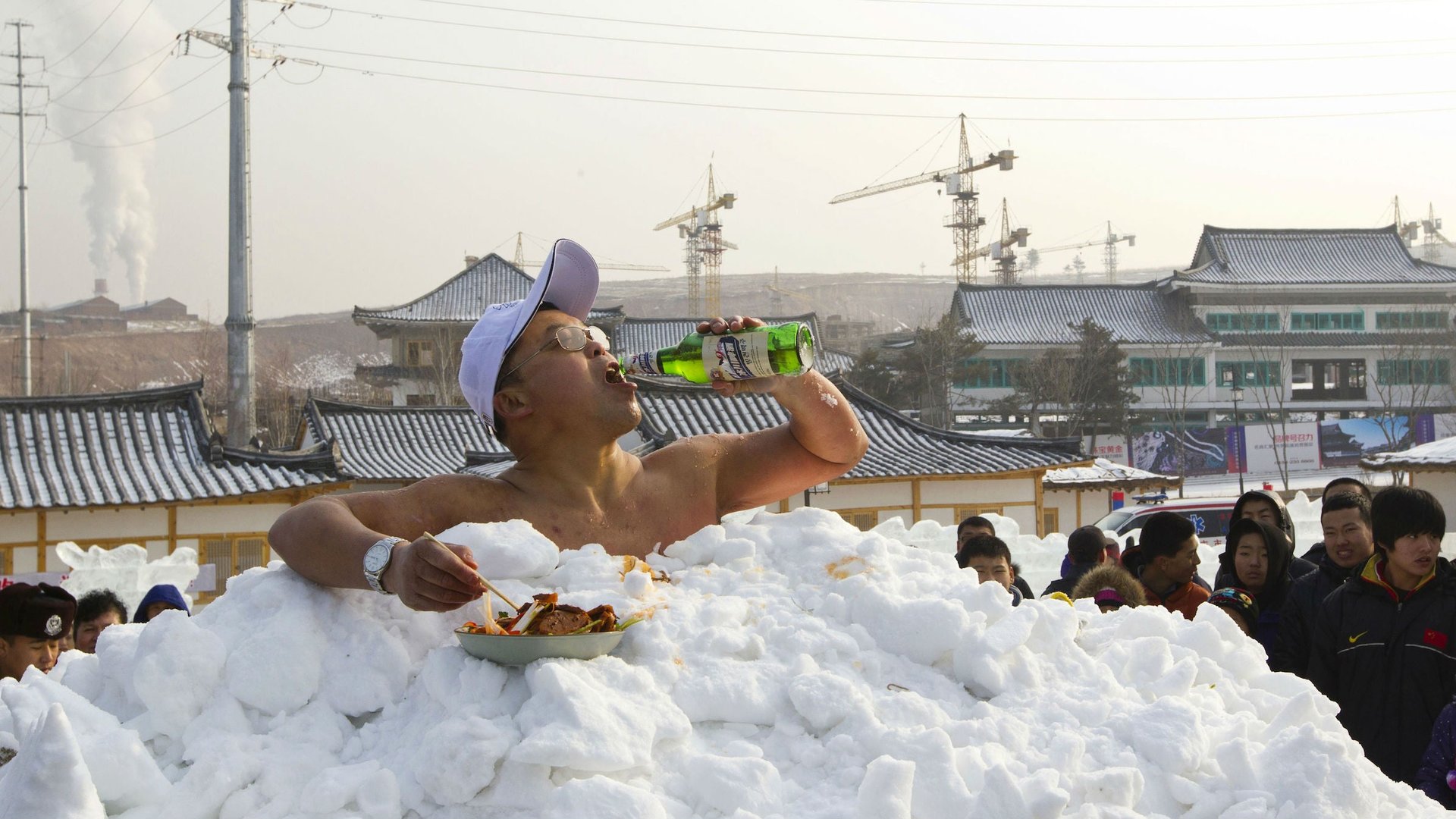SABMiller is betting that Chinese tipplers will crave fancier beer
SABMiller is angling to attract more Chinese beer drinkers, so long as they’re willing to pay higher prices.


SABMiller is angling to attract more Chinese beer drinkers, so long as they’re willing to pay higher prices.
The London-based beer maker and its Chinese partner are waiting for the approval of Chinese regulators and shareholders for their recent $851 million deal to acquire the beer operations of Kingway Brewery, a Chinese drinks producer in Guangdong province. SABMiller, which co-owns China’s largest brewery by volume, China Resources Snow Breweries, says the deal will help it expand its 22% share of the Chinese beer market.
But that won’t be easy. In China’s beer industry, the world’s largest by volume (and double the size of the US beer industry), foreign companies like SABMiller, Carlsberg and Anheuser-Busch InBev have to contend with local brands that sell beer for as cheap as $0.32 a bottle. Competition to keep prices low has eaten into profit margins: The company sells more beer in the Asia Pacific region than anywhere else, according to sales volume data as of March 31. The region accounts for 22% of total sales, driven mostly by sales of Snow, a brand of light, pale beer whose prices range between 3 renminbi to 15 renminbi, or $0.49 to $2.44, depending on the variation. But because SABMiller has to sell at rock bottom prices to match local competitors in China, its Asia Pacific sales only account for about 13% of the company’s earnings, behind that of Latin America and South Africa.
To boost profits, SABMiller is hoping to woo more affluent Chinese beer drinkers with premium brands. Ari Mervis, managing director for SABMiller Asia Pacific talked with Quartz and analysts about the company’s China strategy at a presentation on July 16.
Quartz: You named six Chinese provinces where Snow has built a large presence but didn’t name Greater Beijing and Guangdong province, two of the country’s wealthiest regions. Will the Kingway deal allow you to compete against Chinese brewers like Tsingtao and Zhujiang Beer who currently dominate those markets?
Ari Mervis: We’ve got a position [in Guangdong] but it’s very small. We’re bigger in second-tier cities. Generally, we’ve got a less of a presence in the far west and far north. We’ll certainly consolidate the position [in Guangdong]. Kingway itself as a brand has quite a lot of resonance, so we’ll retain Kingway.
Q: Profit margins for SABMiller’s China business have been relatively flat for about three years. Why hasn’t that margin increased and how do you expect that to change?
AM: There have been two drivers. One, pricing has been relatively flat on a per hectoliter basis in China over the last few years. [There have been] quite a lot of inflationary pressures, particularly wages. Although…the cost to compete [in the premium sector] is high, we see that very much as a longterm brand building opportunity. Going forward, the more we can “premiumize,” the more we can secure route to market, entrench the brand franchise, and secure 70% plus market share in the bases.
Q: You recently launched two premium brands, Opera and Miller Genuine Draft in China. But some say that there isn’t a market for premium beer in China, since beer there is meant to be a cheap, light accompaniment to dinner. Is that true?
AM: Everyone’s pushing prices up and will continue to. The quality of the cheaper beers is inferior. As people start becoming more discerning, they start trading up. There’s been a lot of focus in increasing Snow as a proper brand.
Q: You said that Chinese consumers are starting to make more choices, rather than just choosing the cheapest beer—and that SABMiller is focusing on a “brand pull” strategy instead of a “push brand” one. What does that mean?
AM: With “push brand” you try to pressure on supply side. Pull brand is your advertising. Historically, we’ve focused on the supply side… now we’re focusing on giving people a reason to buy. It’s getting the quality of the beer right, the presentation, getting it brand positioning. [Snow Beer’s slogan is “globe trekker,” which connotes brave exploration.]
Q: In 2001, the top four brewers in China held a market share of 28%. In 2012, that figure was closer to 61%. Is there opportunity for more consolidation in the industry?
AM: There’s not that much opportunity for [major acquisitions], that type of consolidation. Kingway gives us a couple percentage points more [of market share]. I think it is going to be either the smaller guys stop brewing because they become less profitable or we acquire and consolidate or [continue our] organic growth strategy.
Q: You said that the crackdown on lavish spending by government officials has hurt high-end liquor retailers in China, but not the beer industry. Has there been any kind of boost for high-end beer sellers?
AM: It hasn’t made a big impact on beer and I don’t expect it to.
Q: Is high-end beer part of the gifting culture in China?
AM: In Vietnam, yes. In China, no. People prefer to give cigarettes or tea.